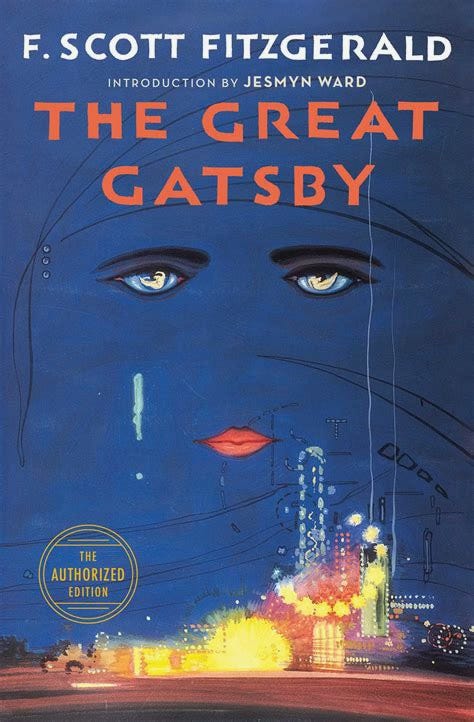April 10th marked the centennial of the publication of F. Scott Fitzgerald’s The Great Gatsby—the slender masterpiece that Anthony Powell called “A sad, serious book about people who are on the whole not themselves serious.” You can re-read it in an afternoon. You should.
At the novel’s conclusion, its narrator, Nick Carraway, catches sight of the green light at the end of Tom and Daisy Buchanan’s dock, across the bay from Gatsby’s house, and sums things up in a coda that may be the best-remembered passage in American literature:
Gatsby believed in the green light, the orgastic future that year by year recedes before us. It eluded us then, but that’s no matter—tomorrow we will run faster, stretch out our arms further . . . . And one fine morning—
So we beat on, boats against the current, borne back ceaselessly into the past…..
It’s almost conventional these days to picture Donald Trump and Elon Musk as outer-borough Gatsbys, revenging themselves on smug metropolitan elites.
But the Trump/Musk green light is not Fitzgerald’s ethereal symbol of longing.
Theirs is a banal traffic signal that says, “You can go ahead. Do what you want; take whatever (or whomever) you desire. There is nothing stopping you. You’re immune.”
This is the green light that re-election offered Trump, and it is what the annexation of Trump offers Musk. The Great Gatsby centennial provides a moment to recognize that there is something fundamental embodied in this shift from Gatsby’s green light to Trump’s.
Donald Trump and Elon Musk can’t tell you what they will want tomorrow, but they and the aspiring oligarchs gathering around them know that tomorrow they will want something. In Trump’s vision of the orgastic future, he gets whatever he wants, immediately, at the moment he discovers that he wants it.
Do Trump and Musk realize that they are demolishing norms and de-legitimizing the laws? Of course they do—their whole focus demands it. Closing a federal agency or appointing a clown to head it meets a tactical objective; the obliteration of constitutional norms is a strategic imperative; an unconstrained future is the goal.
Fitzgerald makes it clear that the green light which Gatsby pursued was a decoy—that it offered the false promise that by amassing wealth Gatsby could defeat class barriers and recapture the ecstatic past he had shared with Daisy Buchanan. Nick Carraway concludes that Gatsby:
… had come such a long way to this blue lawn, and his dream must have seemed so close that he could hardly fail to grasp it. But what he did not know was that it was already behind him, somewhere in the vast obscurity beyond the city, where the dark fields of the republic rolled on under the night.
The unique poignancy of Gatsby derives from Fitzgerald’s recognition that in America belief in the false promise of deliverance through wealth is not only something that has been weirdly sustained despite years of futile pursuit; it is itself somehow sustaining.
Fitzgerald sensed that his green light dazzles all of us, in different ways, to different degrees. Remember, for example, the down-scale reveries of George and Myrtle Wilson, the pathetic garage owner and his wife, whom Tom and Daisy Buchanan casually destroyed. George Wilson believed that if he could only have gotten that used car from Tom; Myrtle that if only she had managed to “live once” in her affair with Tom—that is, if only they could have run faster, stretched out their arms further—life’s riddles would be solved.
The Trump/Musk beacon isn’t a supplement or an alternative to Fitzgerald’s; it’s a repudiation of it; it’s an eclipse—a replacement. Trump, Musk and their broligarchical supporters are seeking nothing more or less than the impunity that Tom and Daisy Buchanan exploited. The status that they crave, like the Buchanans’, comes at the expense of everyone else.
For Fitzgerald, the mark of a first-rate intelligence was the ability to hold two opposed ideas in the mind at the same time, and still retain the ability to function. He mobilized that capacity in writing Gatsby. Fitzgerald accepts—and insists on—the enduring tension between the tawdriness of Americans’ dreams and some essential purity in the dreamers. For Fitzgerald, the American dream is not anyone’s particular set of ambitions; it is the abiding dream-state that we inhabit.
In the end, anyone dedicated to “making America great again” reckons with a moment that Nick Carraway describes: the moment when the Buchanan’s shoreline was seen for the first time, through Dutch sailors’ eyes:
For a transitory enchanted moment man must have held his breath in the presence of this continent, compelled into an aesthetic contemplation he neither understood nor desired, face to face for the last time in history with something commensurate to his capacity for wonder.
When you say your goal is to “make America great again”, isn’t this this the “great” you mean? Isn’t this Lincoln’s “last best hope of earth”? The Trump/Musk green light beckons you in a different direction—toward a settled, stratified, autocracy where the rich can do as they like.
A century on, when you read Gatsby Nick Carraway will offer you and MAGA-hatted admirers the same verdict on Trump, Musk and their acolytes that he delivered on the Buchanans. “They’re a rotten crowd!”


Thoughtful column. “Broligarchical” was a nice touch.